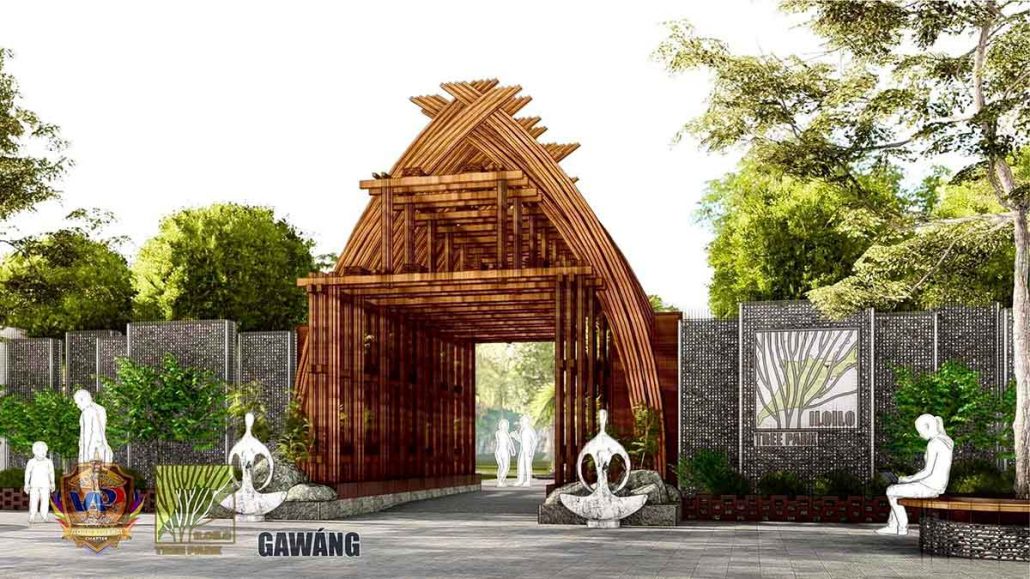
ILOILO City – The city government does not only focus on building vertical infrastructure. Development must be holistic, stressed, Mayor Jerry P. Treñas, thus he introduced “horizontal” projects and programs that strengthen the city’s urban planning and execution.

“We intentionally aim to balance our infrastructure developments in the hope of making the city urbanized yet livable for all Ilonggos,” said Treñas.
With various sustainable programs and projects, this southern city is on a roll to becoming a more vibrant and livable city.
Anchored on Treñas’ roadmap for inclusive development called WHEELS (Welfare, Health and Sanitation, Education, Environmental Management, Livelihood, and Sustainability), these programs aim not only to improve the Ilonggos’ way of living but also to protect and preserve the environment for the future generations.
Environment-friendly initiatives were launched such as having “green spaces” all over the metro. Among these are the regular city-wide cleanup drives, tree planting and the Tree Park Network Project.
The Tree Park Network Project consists of eco-forests in three districts namely: Iloilo Tree Park in Barangay Lanit, Jaro; Beach Forest in Barangay Boulevard, Molo; and Mangrove Eco-Park in Barangay Hinactacan, La Paz.
This aims to restore biodiversity in the city by collaborating with private partners, national agencies and global organizations.
“As we continuously create infrastructure developments in the metro, we envision compensating by equally building green spaces all over the city. And as we persist in leveling up, we will also extend all efforts to mitigate the effects of climate change,” Treñas said.
Among these are improving drainage and sanitation, and promoting the use of both natural light and ventilation, and solar panels in buildings and facilities.
A Rainwater Collection System (RWCS) will also be introduced to collect rainwater through pipes connected to the roofs of schools, offices, barangay halls, plazas, and gyms.
The accumulated rainwater is distributed to toilets, washrooms and/or other facilities to be used by residents through pipes attached to the water-collecting structure. This initiative also helps address water shortage and promotes water conservation.
An example is La Paz Plaza’s redevelopment; it also includes the establishment of a retention pond to catch rainwater and prevent flooding, which is also utilized for watering plants.
On the other hand, the Tree Park in Jaro will apply a mounding technique to prevent water from pooling randomly and serve as a rainwater catchment.
Also, the city government through its Beautification Team has a team focused on planting flowers and trees in the city.
Meantime, the Iloilo River Esplanade is also being eyed as an educational ecotourism hub.
The Iloilo City Tourism and Development Office, in partnership with the University of the Philippines Visayas, earlier proposed a development project called “Iloilo City Eco-Trail: A Showcase of Rich Biodiversity and Environmental Protection.”
With all these efforts for environmental sustainability, Iloilo City is deemed among the greenest cities in the country.
Also among the most visible of these sustainable urbanization programs is the makeover of all the city’s six public plazas. In fact, not only the Ilonggos themselves but also visitors are already enjoying the redeveloped Plaza Libertad, Molo Plaza and Arevalo Plaza, while rehabilitation of Jaro Plaza, Mandurriao Plaza and La Paz Plaza are ongoing.
The improvement of historic Plaza Libertad is now in its second phase following the establishment of an assembly area in front of city hall just across the plaza, and lighting fixtures.
Aside from public plazas, the city’s public markets, including its two biggest – Iloilo Central Market and Iloilo Terminal Market – are currently undergoing rehabilitation to provide a conducive space for commerce and better livelihood opportunities for vendors.
The city government is also enhancing its bike network to improve connectivity and promote inclusive mobility. The 12-kilometer bike network across the city is the first protected bike lane in the country.
The city’s I-Bike Program that promotes the bike culture won this year’s Galing Pook Award as one of the most innovative local governance programs in the country.
This southern city also won the gold in the Wheels for Work X Bike Lane Awards in celebration of the National Bicycle Day.
The city’s effort to promote the bike culture can be traced way back before the onset of the coronavirus pandemic. In 2013 it started a bike festival and since then have been recognized as a “Bike-Friendly City”.
In 2021, Iloilo City also bagged the gold award in the first-ever National Bike Day Bike Lane Awards, a project mounted by the Department of Transportation, Department of Interior and Local Government, Department of Public Works and Highways, Department of Health, and SM Cares.
The city’s bike lane linkage project connects three major bike lane networks – Sen. Benigno Aquino Jr. Avenue, the University Loop, and the 12-kilometer bikeable section of Iloilo River Esplanade.
“We are able to make Iloilo City the next MICE (Meetings, Incentives, Conferences and Exhibitions) destination, not only making it livable but also a hub for tourism and investments,” said Mayor Treñas./PN



